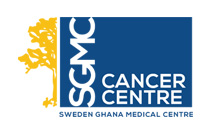Treatment duration
Sweden Ghana Medical Centre is an outpatient cancer centre. Once your diagnosis has been confirmed and your health status has been assessed, your Oncology team will decide the appropriate treatment for you. Your Oncologist will tell you how long you will receive cancer treatment, and in what form – including treatment such as chemotherapy, radiotherapy and brachytherapy. There are different periods of time for treating cancer depending on the type of treatment that has been decided.
Radiotherapy
Radiotherapy is the treatment of cancer with radiation that kills cancer cells
Duration. A radiotherapy course can last for anything from a single treatment session to five treatments a week for six and a half weeks, depending on a number of factors. For example, it will depend on the part of your body being treated and the reason for the treatment. The length of a treatment session can be anything from ten minutes to fifteen minutes. Occasionally a session may take longer, but your clinical team will explain to you how long each session will take when you come for your first treatment. There is usually a two-day break between radiation therapy treatment cycles to give the body time to recuperate.
What is a radiotherapy fraction? Radiotherapy treats cancer by means of ionizing radiation, which kills cancer cells in a targeted way. Your Oncologist will decide your total dose of radiation, and it will be spread out over a period of time. The radiation will be administered in a number of even parts or treatment sessions, which are called fractions.
Chemotherapy
Chemotherapy is the use of strong drugs to kill cancer cells
Duration. Usually chemotherapy treatment lasts for 3 to 6 months. The length of chemotherapy depends on the duration of the chemotherapy cycle determined by your Oncologist, as well as the frequency and number of chemo cycles. Your cancer may be treated with either a single drug or a combination of drugs. These cancer drugs may all be given to you on a single day or over several consecutive days. Sometimes they will be given to you continuously as an outpatient. How long you get chemo depends on the type of cancer you have, your treatment goals, and how the cancer and your body work with the drugs.
What is a chemo cycle? Chemotherapy treatment will be scheduled to take place in repeat sessions, called cycles. These cycles may repeat weekly, bi-weekly, or monthly. Usually, a cycle is defined in monthly intervals. For example, two bi-weekly chemotherapy sessions may be classified as one cycle. Chemo is usually given with breaks between treatment cycles. The breaks give your body time to rebuild healthy new cells and this allows you to get your strength back.
Brachytherapy
Brachytherapy uses implanted radioactive seeds to kill cancer cells
Duration. Usually brachytherapy is done over a two-week period. With our brachytherapy machine, internal radiation therapy can be completed as quickly as three to five outpatient treatments of a few minutes each over several days.
What are gold seed markers? At Sweden Ghana Medical Centre, we use gold seed markers to guide internal beam radiation. Before you can start your brachytherapy treatment, you will have a short surgical procedure to insert markers at the site of the cancer tumour. Gold seeds are very tiny, smaller than a grain of rice – and they do not interact with body tissue. They can be left permanently in the body after treatment without side-effects.
End of treatment
Ensuring quality of life
The length of your overall cancer treatment will be determined by the way the visible cancer responds to your treatment therapy. Your Oncology team will continue to monitor the presence of cancer in your body as your treatment progresses.
- If the observable cancer cells are destroyed, your Oncology team may continue treatment according to plan so as to maximize the chance of having attacked all microscopic disease cells.
- If the cancer tumours shrink in size, but you still have visible cancer cells, then your Oncology team may change or prolong the cancer treatment options for as long as your body can tolerate the treatment.
- When your cancer is metastatic, it may not be eliminated, but shrinkage is a good result and your treatment may end while the oncologist monitors your progress over time.
- Certain chemotherapy and radiotherapy treatments are pre-operative or neoadjuvant, meaning they are done specifically to help shrink your cancer tumour before other treatments such as surgery, and they will end when the neoadjuvant treatment goal is achieved.
- If the cancer continues to grow and spreads beyond the primary site, your diagnosis may change from curative to palliative. Depending on your health, your Oncology team may recommend a new treatment protocol, and the focus will be on improving your quality of life as you live with the disease.
Accommodation
Convenient and affordable accommodation. We understand that coming for treatment may involve finding accommodation if you are coming from outside Accra. Our case management team has set up a range of affordable accommodation options that patients can choose from, all conveniently located near our cancer center in East Legon Hills. Accommodation ranges in price from US$20 to US$80 per day for guest houses and hotels, and between US$500 to US$1700 per month for apartment suites. Please ask your case coordinator for more information.
